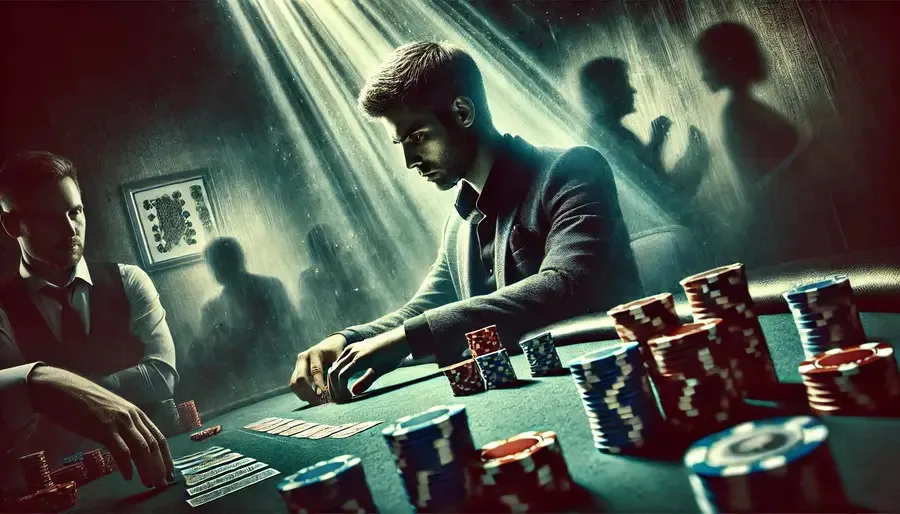
Psychological Resilience in Sports Poker
Psychological resilience plays a crucial role in sports poker, where emotional control and mental strength can significantly impact performance. Unlike traditional casino games, poker requires strategic thinking, patience, and the ability to handle both success and failure without letting emotions take over. Spillehallen Casino players who develop strong psychological resilience can maintain their focus, make rational decisions, and avoid the common pitfalls that come with emotional play.
Understanding the mental challenges of poker is essential for long-term success. Variance in poker means that even the best players experience losing streaks, which can test their emotional stability. Those who fail to manage their emotions effectively may make irrational decisions, leading to further losses. Developing a strong mindset helps players stay disciplined, make optimal moves, and view losses as part of the game rather than personal failures.
How Losing Affects the Psyche of a Player
Losses in poker can trigger a range of emotional responses, including frustration, self-doubt, and even anger. Many players experience tilt, a psychological state where negative emotions cloud judgment and lead to poor decision-making. The unpredictability of poker means that even well-calculated moves can result in losses, making it crucial for players to separate their emotions from their gameplay.
One of the most damaging effects of losing is the tendency to chase losses, where a player increases their bets in an attempt to recover. This often leads to even greater financial and emotional distress. Spillehallen players who lack psychological resilience may also develop negative self-perceptions, believing they are unlucky or incapable, which further impacts their ability to make rational choices at the table.
Strategies for Coping with Losses and Stress
One effective strategy for handling losses is practising emotional detachment. Players should treat each hand as an independent event and avoid dwelling on past mistakes. By maintaining a logical approach and focusing on the long-term strategy, poker players can make better decisions, regardless of immediate results.
Another essential coping strategy is setting limits. Establishing stop-loss limits before playing can prevent players from making reckless decisions in response to losses. When a player reaches their set limit, they should take a break rather than continuing in a frustrated state. Spillehallen Casino players can benefit from disciplined bankroll management, ensuring they never risk more than they can afford to lose.
Additionally, mindfulness techniques such as deep breathing and meditation can help players manage stress and maintain composure. Taking short breaks during sessions allows players to reset mentally and return to the game with a clear mindset. Engaging in relaxation exercises outside of poker can also enhance a player’s ability to stay calm under pressure.

Self-Development Techniques for the Poker Player
Building resilience in poker requires ongoing self-improvement. One method is through self-analysis, where players review their hands and decisions to identify patterns and areas for growth. Regularly analysing gameplay allows players to refine their strategies and improve their decision-making.
Another key aspect of self-development is learning from experienced players. Reading poker strategy books, watching professional gameplay, and participating in poker forums can provide valuable insights into psychological resilience. Understanding how top players manage their emotions and maintain discipline can help aspiring players develop similar habits.
Lastly, maintaining a balanced lifestyle contributes to better mental performance at the poker table. Regular exercise, healthy eating, and sufficient sleep all support cognitive function and emotional stability, ensuring players can stay focused and make rational decisions.
Mistakes to Avoid When Working on Psychology
One common mistake players make is ignoring emotional triggers. Many players fail to recognise when they are on tilt, leading to irrational play and unnecessary losses. Being self-aware and identifying emotional shifts early allows players to take preventive action before their gameplay is affected.
Another error is neglecting rest and breaks. Some players believe that playing for extended periods will increase their chances of winning, but mental fatigue often leads to poor decisions. Taking regular breaks ensures that players maintain their concentration and avoid burnout.
Finally, relying solely on luck rather than strategy is a significant psychological mistake. While luck plays a role in short-term outcomes, long-term success in poker depends on skill, discipline, and mental resilience. Spillehallen players should focus on consistent improvement and strategic play rather than chasing immediate wins.

